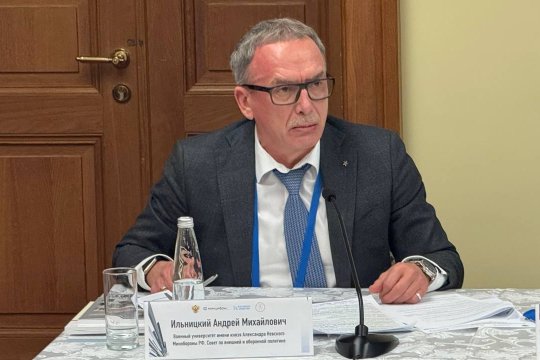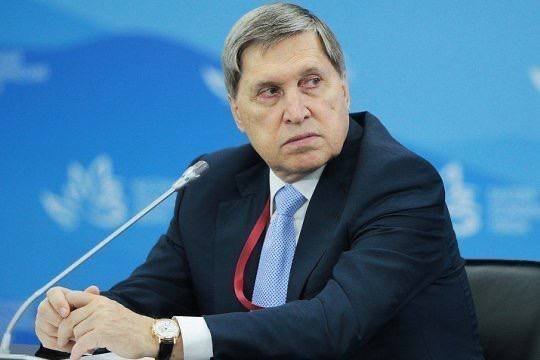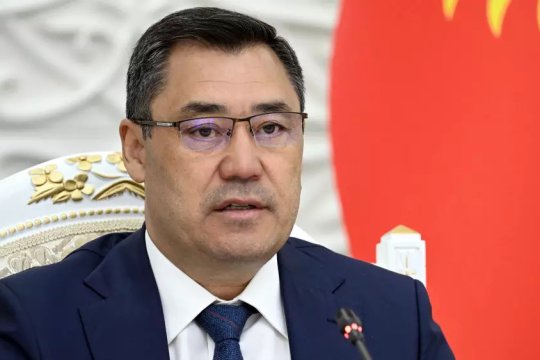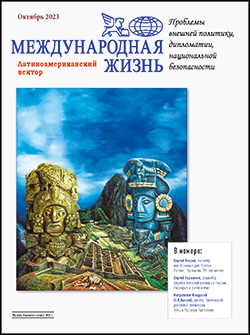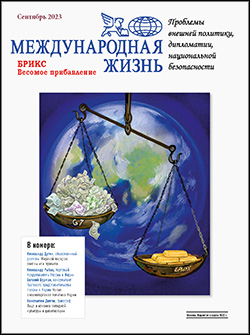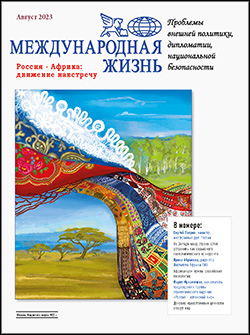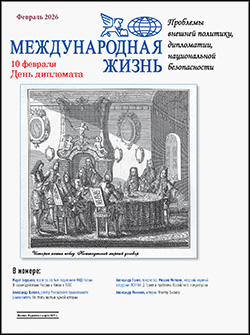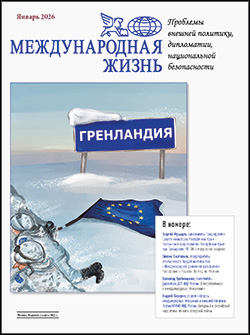DIPLOMACY
Sergei A. Ryabkov, Deputy Minister of Foreign Affairs of the Russian Federation: Regarding the foreign policy pros and cons of 2012
Syria - is a con in the sense that the situation has not improved. Another con is the lack of adequate progress on a number of aspects of our relationship with the U.S. There are other cons, which are not as "politically charged", such as the difficulties that we are having over the visa dialogue with the EU.
Among the positive results of the year were the formation of the Eurasian Economic Commission consisting of Russia, Belarus and Kazakhstan, the strengthening of the Collective Security Treaty, and the development of relations with a number of countries in different regions, including Latin America. Russia's accession to the WTO was a big pro.
Key words: "Magnitsky Act" rotation surrounding Obama talks on missile defense, the Middle East and Latin America.
Yerlan Idrisov, the Minister of Foreign Affairs of Kazakhstan.
Kazakhstan and Russia: 20 years of strategic partnership
One of the major events of the past year was the 20th anniversary of the establishment of diplomatic relations between Kazakhstan and Russia. For our countries, this period became a whole historical epoch that marked a sea change in the economic, political and social consciousness of society. However, the same was formed by centuries of common history, and a spirit of good neighborliness between the peoples of Russia and Kazakhstan.
Keywords: 20th anniversary of the establishment of diplomatic relations between Russia and Kazakhstan, Russian-Kazakh cooperation, good neighborliness and strategic partnership.
POLICY
A. Arbatov. The nuclear threat - not a bluff
Security issues affect ordinary people only when there is war or military spending increases to such an extent that they feel it in their pocket. Last year relations worsened between the U.S. and Russia and between the Islamic states on the one hand, Iran, and on the other, the Arab countries. In Syria, they are fighting through intermediaries. This is the first sign of a direct military confrontation. Take the territorial disputes over islands between Japan and China, or South-East Asia, not to mention Africa.
Keywords: Iran, Syria, the nuclear threat, the Middle East, Iran's nuclear program "Global Zero."
D. Kiku. Germany - an active player on the platform of the Security Council
Germany views the UN as the central, most versatile tool for the maintenance of global peace and stability, all the while knowing that a heavy contribution to this important role in this regard is played by regional organizations and associations, particularly the EU, NATO and the OSCE. Germany stands ready to take on a greater burden of responsibility within the UN with the hope of obtaining a permanent seat on the main body of the Security Council.
Keywords: UN Security Council, Germany, "group of four", Kosovo, the Syrian crisis, the resolution of the Palestinian-Israeli conflict, post-conflict settlement in Afghanistan.
V. Petrovsky. Russia, China, and the new architecture of international security in the Asia-Pacific Region
A balanced Russian foreign policy is not the priority of the West in terms of the security and development of our country. The interests of the development of Siberia and the Far East require increased attention to cooperation with the countries of the Asia-Pacific region, especially with China and other East Asian countries. Under these circumstances, this will mean plotting an equidistant course. The strategic goals of Russia in East Asia are to promote peace, stability and prosperity, which in turn, are intended to facilitate Russia's integration into the regional architecture of security and cooperation, solving the problems of the modernization of the Russian economy.
Keywords: international security architecture in the Asia-Pacific countries, multilateral security arrangements in Northeast Asia and the Asia-Pacific region, the Russian-Chinese partnership, "Chimerica."
A. Savoysky. Economic diplomacy as a phenomenon of international life
Stepping into the second decade of the XXI century, local and foreign scientists have not reached a consensus on economic diplomacy. Until now, there has been no single approach to the scientific conceptual apparatus and the early days of the stages of the evolution of economic diplomacy, the modern concept of its forms and mechanisms. But economic diplomacy cannot be divorced from traditional, classical diplomacy.
Key words: the concept of "diplomacy," economic diplomacy, evolution, traditional diplomacy, types of diplomacy.
Column of the Editor in Chief
A. Organesyan: "Mittelstadt" - the German "miracle"
Mittelstadt is a small town, barely visible on the map of Germany. However, the word is well known to economists around the world, and in Bonn there is a research institute which deals exclusively with Mittelstadt issues.
In fact Mittelstadt is a collective image of unknown terrain. This is the territory inhabited by small and medium sized businesses in Germany. Here you can easily find a company that employs only 30 people in a space not much larger than an auto repair shop, and yet be of a recognized international brand.
Keywords: Mittelstadt, Germany, family, business continuity, the motto - prudence above all.
GERMANY YEAR IN RUSSIA
L. Klepatsky. Regarding potential partner cities in Russian-German relations
Over the last 20 years relations between Russia and Germany have become extensive and diverse. Virtually no single sphere of public life is not covered by mutual cooperation. Perhaps not one of the European countries has seen such qualitative changes in mutual relations after the end of the Cold War, as the Federal Republic of Germany. This fact indicates that the two countries have effectively implemented the basic meaning of the Treaty of Good-neighborliness, Friendship and Cooperation, of November 9th 1990. Compared with the period after the establishment of diplomatic relations between the USSR and Germany, it laid down radically new, political and legal conditions for mutual relations.
Keywords: Russo-German relations, the Treaty of Good-neighborliness, Friendship and Cooperation, Uglich and Idstein partner cities, humanitarian actions, cultural, youth cooperation, civil society.
N. Kargapolova. Russia and Germany: centuries of history
The exhibition "Russians and Germans: 1000 Years of History, Art and Culture" opened a crossover year for Russia and Germany in 2012-2013, and was held under the patronage of the President of the Russian Federation Vladimir Putin and President of the Federal Republic of Germany, Joachim Gauck. The joint cultural and historical project gathered together in a single exhibition space more than 700 exhibits provided by 75 participants from the Russian and German sides, museums and archives in Austria, Switzerland and Latvia.
Keywords: exhibition "Russian and Germans: 1000 years of history, art and culture," Alexander I, Nicholas I, by decree of Catherine II, the German settlement.
Yalta 2012
Developments in the Eurasian vector: problems and prospects for the International Conference.
"International Affairs" Magazine supported by the Russian Foreign Ministry held an international conference in Yalta for the third year in a row. This time, the subject of discussion was Eurasian integration. Never has so widely formulated a topic extended the geographical scope of the invited guests - from Belarus, Kazakhstan, Kyrgyzstan, Moldova, Ukraine, Italy, and Russia.
Читайте другие материалы журнала «Международная жизнь» на нашем канале Яндекс.Дзен.
Подписывайтесь на наш Telegram – канал: https://t.me/interaffairs

 14:09 22.02.2013 •
14:09 22.02.2013 • 